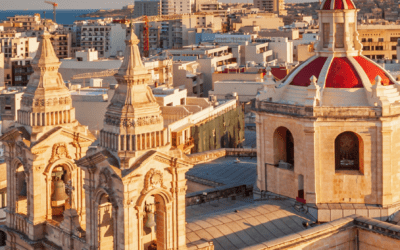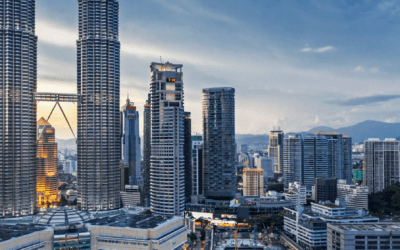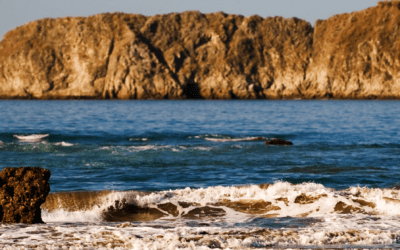Dateline: Hong Kong
Almost thirty years ago, Hong Kongers were freaking out about their return to China. No one knew what would happen, but they didn’t think the news was optimistic.
Today, of course, Hong Kong is a global financial center. After twenty years back with China, not a lot has changed for the worse.
In fact, so little has changed and Hong Kong has continued to thrive so much that banks here are swimming in cash. They are turning away even Hong Kong residents from opening accounts.
Yep; banks here need new business like they need a hole in the head.
It’s interesting to see how things change and how the trajectories of countries evolve over time. One day, Hong Kong got word that their status as part of the UK was ending. They thought their time was over, but that was far from the truth.
Other countries think the party will never end and inevitability suffer the consequences.
But let’s forget about countries for a moment. Let’s talk about you. What opportunities have you been missing out on because you thought the party would never end?
What opportunities have passed you by because you figured “I’ll do it next week”?
As westerners, we’re taught that opportunity is endless. We tell young children that they can grow up to be anything they want. And we tell ourselves that the opportunities in front of us today will be there just the same tomorrow. It comforts us in our excuses and procrastination.
However, when it comes to international diversification, change is the only constant.
I went through some old files on my computer on the flight from Istanbul to Hong Kong and I came across a neglected spreadsheet I created way back in late 2012. The spreadsheet listed a bunch of countries that I was researching and (most of which) eventually visited to conduct due diligence and meet professionals.
Reading over this four-year-old document was like a blast from the past. I might as well have been reading it on a wood paddle because practically everything in that untouched spreadsheet has changed since I created it.
Let’s examine what has changed in the last four years:
The Bahamas
The Bahamas has become more strict on the requirement to own property in order to obtain second residence. Of course, the Bahamas figured that having no income tax made them a prime choice for the “everyone but Americans” crowd who could move there (even if just on paper) and enjoy tremendous tax savings.
Back then, you didn’t need a property to qualify, and you technically still don’t today. However, applications are handled much less favorably now than they were then. I’ve heard rumors, as well, from folks there who say that the Bahamas is also more strict on their three-year “abandonment” rule for people who haven’t invested there.
Belgium
Belgium is one country where second residency has at least become a little less expensive… in a sense. The country now requires less paid-up capital in a new venture and has also changed rules regarding minimum salary. However, they have also increased the time required in-country before naturalization. A Belgian passport now takes five years to obtain, rather than the previous requirement of three years.
Brazil
The Zika-infected bureaucracy loved for its beaches and bums the world over, used to allow anyone who invested 150,000 Brazilians reals into a company (then about $75,000) to live there under favorable terms. Citizenship was and still is possible after several years.
A year or two ago, Brazilian residency looked pretty attractive as the real collapsed and the minimum investment dropped to as little as $37,000. However, bureaucracy has become so bad that it now takes months just to open a bank account. Recently, the Brazilian government increased the minimum investment to 500,000 reals, or about $125,000. That’s nearly double what is was, even back in the days when Brazil was riding high as the “next big thing” in the BRICS.
Costa Rica
While Costa Rica’s second residence program still requires $2,500 per month in income, I’ve heard form multiple folks who have had applications pending for years and are now being denied. Costa Rica was always an inefficient bureaucracy — and I’ve said that countries like Nicaragua are “the new Costa Rica” for people who don’t want a lot of wasted time — but it’s clear that Costa Rica is now more difficult than ever.
Czech Republic
The Czech Republic is one of numerous nationalistic states in Central and Eastern Europe, and their immigration policy reflects it. Four years ago, to qualify for residency you needed to start a company with $12,000 in start-up capital, but only half of it actually needed to be in the bank. Super easy.
At the time, the government was trying to curb applications from undesirable foreigners by imposing a language requirement and debating increasing the capital. Today, the program essentially doesn’t exist, the casualty of the same nationalism that has also taken over Hungary and, more recently, Poland.
Hong Kong
Until recently, practically anyone could deposit HK$10 million (about US$1.29 million) in a Hong Kong bank, brokerage account, stocks, or a local company and get an HKID with the promise of “right of abode” after seven years. (Well, everyone except mainlanders without permanent residence somewhere else.)
Unfortunately, the government here put the kibosh on the Capital Investment program about a year ago. Now, the Hong Kong residency requires that you have a lucrative job offer or that you start a company and actually live and pay tax here. The easy residency program is dead — probably forever.
Latvia
Latvian residency used to require a rather small real estate investment, plus a laughably tiny government fee of about $200. Similar to today, Latvian citizenship was hard to come by back then, requiring ten years of actual time spent in the country. However, the residency aspect of the program allowed any small investor to buy free reign in the Schengen Area on the cheap.
No more.
Since my spreadsheet, Latvia has raised the investment amount and increased the fee to a minimum of 12,500 euros. The fee for a separate bank deposit option was increased to 25,000 euros.
Singapore
This is perhaps the most crushing blow on my list of second residency options. For one thing, Singapore citizenship is now practically off the table for new applicants. While it technically takes seven years to be naturalized, getting the requisite permanent residence status has become a huge chore in and of itself, delaying any citizenship prospects. However, even getting temporary residency has become a chore.
Starting a business used to be an easy way to get an EntrePass, which gave you access to the city-state. Now, EntrePasses are handed out about as infrequently as the winning lottery ticket.
As I wrote last year, you can practically cross Singapore off your list of residency options. That is unless you’ve got a compelling idea, are willing to live there, and are willing to pay substantial salary tax there. If you sign on for that, don’t expect much beyond temporary residence at this point.
Slovenia
This gorgeous EU country used to be an easy second residency for anyone willing to start a business, run a few transactions through the account and generate a little tax. For a few thousand euros, you were in business. However, Slovenia raised its minimum paid-up capital to 50,000 euros earlier this year, making it a lot less competitive.
Dominica and New Residency Programs
In addition to those second residency programs, the economic citizenship program of Dominica raised its minimum contribution from $100,000 to $175,000 for a single applicant. The good news for second citizenship seekers is that there have been several new “buy a passport” programs in the last few years, although none are cheaper than even the more expensive Dominica option.
There are a few new options that have come on the market, even while these programs have become significantly more difficult, expensive, or simply non-existent. However, new programs mean re-tooling your strategy and losing time.
Listen; I’ve been there. I know how it feels to think the options are endless and will never change. I think there’s a sort of entitlement among some westerners, and probably especially US citizens, that the rest of the world will bow down to them.
I’ve also been the guy who wants to rush into something because I don’t want to miss out.
I’m not suggesting you be impulsive. As with many things, a happy medium is probably appropriate. However, I can’t recall ANY deal that I regret having rushed in. In fact, some of my biggest hits were deals I did without thinking much.
Things change constantly in this business. Countries decide they’re sick of foreigners (i.e. the Czech Republic). Political winds shift and new parties are elected (i.e. Singapore). Immigration authorities impose stricter requirements because they can (i.e. Latvia). And other countries just decide they’re rich enough to shut the door entirely (i.e. Hong Kong).
Act today with today’s opportunities
I’ve said for years that “the next Singapore” is a place that you can get into today, but won’t be able to get into in ten years. Why? Either they’ll close the place down to foreigners, or the requirements will become so steep you won’t be able to afford it.
Now, for some tough love: there will always be someone more desirable than you or I. Countries aren’t sitting around thinking “I hope Bob brings his $12,000 here”. Even while I may be able to write an article that reaches hundreds of thousands of people over its lifetime, some Chinese guy can invest $5 million. Governments usually prefer the guy that has $5 million to drop.
So if you want a second residency and passport, observe the options available today and choose the best one for you. If you believe that today’s best option will be waiting for you four years from now — or even in one year — you might find yourself priced out of the market.
There are only so many countries in the world.










